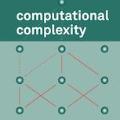We study a general scenario of simultaneous contests that allocate prizes based on equal sharing: each contest awards its prize to all players who satisfy some contest-specific criterion, and the value of this prize to a winner decreases as the number of winners increases. The players produce outputs for a set of activities, and the winning criteria of the contests are based on these outputs. We consider two variations of the model: (i) players have costs for producing outputs; (ii) players do not have costs but have generalized budget constraints. We observe that these games are exact potential games and hence always have a pure-strategy Nash equilibrium. The price of anarchy is $2$ for the budget model, but can be unbounded for the cost model. Our main results are for the computational complexity of these games. We prove that for general versions of the model exactly or approximately computing a best response is NP-hard. For natural restricted versions where best response is easy to compute, we show that finding a pure-strategy Nash equilibrium is PLS-complete, and finding a mixed-strategy Nash equilibrium is (PPAD$\cap$PLS)-complete. On the other hand, an approximate pure-strategy Nash equilibrium can be found in pseudo-polynomial time. These games are a strict but natural subclass of explicit congestion games, but they still have the same equilibrium hardness results.
翻译:我们研究的是同时竞争的一般情况,这种同时竞争在平等分享的基础上分配奖项:每个竞争者将其奖项颁发给所有符合特定竞争标准的球员,随着获奖者人数的增加,奖项对赢家的价值将下降。球员为一系列活动提供产出,而得奖标准则以这些产出为基础。我们认为模式有两种不同的模式:(一) 球员有生产产出的成本;(二) 球员没有成本,但有普遍的预算限制。我们发现,这些游戏是完全潜在的游戏,因此总是有纯战略的纳什平衡。无政府状态的价格是预算模式的2美元,但对于成本模式则可以不受限制。我们的主要结果就是这些游戏的计算复杂性。我们证明,对于模型的一般版本,或者大致计算出最佳反应的,是NPP-硬的。对于最容易计算出来的自然限制的版本,我们发现,找到纯战略的纳什平衡是完全可能的游戏,因此,找到混合战略的纳什平衡是预算模式的2美元,但可以不受成本模式的限制。我们的主要结果是这些游戏的计算方法是精确的周期。在另一类的精度上,可以找到一个固定的固定的固定的游戏。




